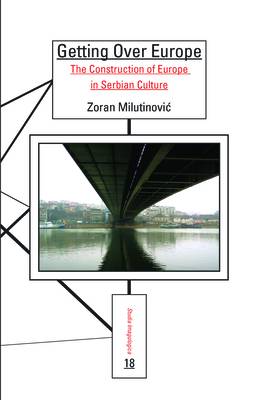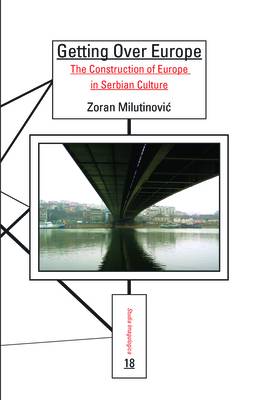
- Afhalen na 1 uur in een winkel met voorraad
- Gratis thuislevering in België vanaf € 30
- Ruim aanbod met 7 miljoen producten
- Afhalen na 1 uur in een winkel met voorraad
- Gratis thuislevering in België vanaf € 30
- Ruim aanbod met 7 miljoen producten
Zoeken
€ 145,95
+ 291 punten
Omschrijving
The book examines the discursive construction of the representation of "Europe" in the selected writings of leading Serbian writers and intellectuals in the first half of the twentieth century. In addition to being of particular significance in the process of the genesis of our understanding of Europe across the continent, these several decades were crucial for the discursive construction of "Europe" in Serbian culture: when after the end of the Cold War the debate on Europe became possible again, it was on a discursive level to a large extent determined by the stockpile of images and ideas created between the world wars. The book seeks to answer the following questions: who constructed "Europe", and with what authority? For whom were these constructions intended? How was this representation validated? What purposes was it meant to serve? Which issues were raised in comparing "Europe" with Serbia, and why? Which textual traditions were the elements of this construction borrowed from? How did the construction of the European other define Serbian self-representation? This volume is of interest for all those working in Slavic or East European studies - especially cultural, intellectual and political history of the Balkans - imagology, and European studies.
Specificaties
Betrokkenen
- Auteur(s):
- Uitgeverij:
Inhoud
- Aantal bladzijden:
- 292
- Taal:
- Engels
- Reeks:
- Reeksnummer:
- nr. 18
Eigenschappen
- Productcode (EAN):
- 9789042032712
- Verschijningsdatum:
- 1/01/2011
- Uitvoering:
- Paperback
- Formaat:
- Trade paperback (VS)
- Afmetingen:
- 155 mm x 234 mm
- Gewicht:
- 408 g

Alleen bij Standaard Boekhandel
+ 291 punten op je klantenkaart van Standaard Boekhandel
Beoordelingen
We publiceren alleen reviews die voldoen aan de voorwaarden voor reviews. Bekijk onze voorwaarden voor reviews.








